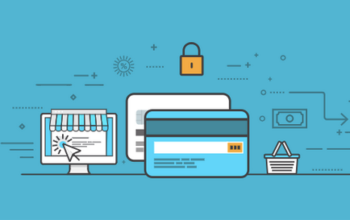Started a business but clueless to handle the bookkeeping – consider weighing the different advantages and disadvantages of bookkeeping software before investing. There is innumerable bookkeeping software, but it is always a challenge to select the suitable one.
Brian C Jensen suggests that you invest in the latest technology and upgraded software version for accounting compatible with your phone. It must offer all the features for seamless business planning, organizing, financial control, and banking functionalities.
Prime considerations before investing in bookkeeping application/software
Match your current accounting process to understand the different pros and cons and make an informed decision. It means which process is your finances are dependent on spreadsheets, templates, or calculators. You must figure out your business requirements to decide on the relevant software.
There are several features offered in different bookkeeping software. You must demark between what you need and what could be a potential business requirement. Look out for the industry and country-specific features before deciding. Features like multi-currency and rate convertor are few to mention.
Here are some of the bookkeeping software features to look for: Customized invoice template, invoice management, quotations and estimation, expenditure tracker, vendor details, client portal, scanning of receipt, expense segments (personal and business), account reconciliation, direct deposits, bank deposits, checks entries, time tracker, payroll management, inventory management, standard reporting, customized reporting, forecasting the expenses, budgeting, automatic Tax calculator, purchase orders, sales order, multi-currency, currency convertor, multi-language, and mobile accessibility.
Budget is of paramount importance before deciding the bookkeeping application. Do not end up paying huge or in debts on buying costly software. Pick the one which is just right for your business. Remember, there are other options also than investing in good software. You can always get the accounting outsourced to any bookkeeping firm.
Technology is on its boom, and you can maintain the books either on the system or on the cloud. Cloud accounting software offers better scalability, greater accessibility, wide-ranging features, and seamless integration. Any software upgrade is unaffected when it is present on a cloud.
The smooth integration ensures faster banking processes and credible payment gateways. The interface is very user-friendly, authorization system and data security. You also get unlimited space on getting the cloud accounting software.
Brian C Jensen mentions the major regulations for bookkeeping and accountancy
- GAAP: Generally Accepted Accounting Principles are the set of regulations and accounting principles set by the Financial Accounting Standards Board (FASB). Public companies must adhere to the rules and regulations of GAAP for compiling financial statements.
- AICPA: American Institute of Certified Public Accountants is the governing body for FASB and Accounting Research Bulletins and Accounting PrinciplesBoard.FASB and AICPA work closely on technical bulletins and industry audits.
- IFRS: International Financial Reporting Standards is the international regulatory body set by the International Accounting Standard Board (IASB). GAAP is the accounting and financial report generator for USA businesses but, IASB is for global companies.
Ensure and improve your financial health with the latest innovative version of accounting software.
Related Posts












